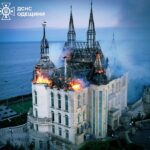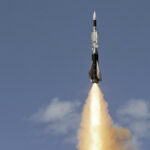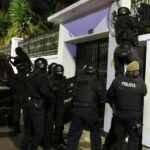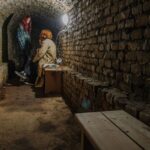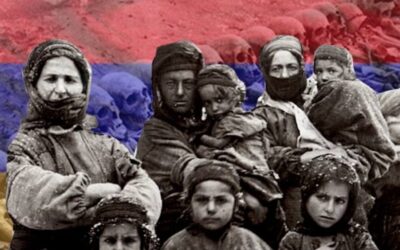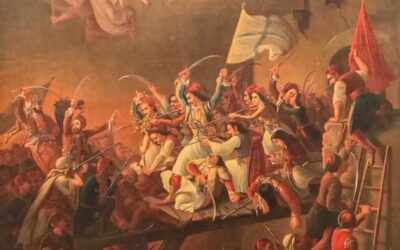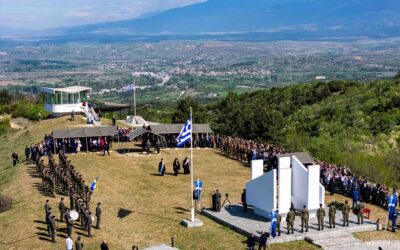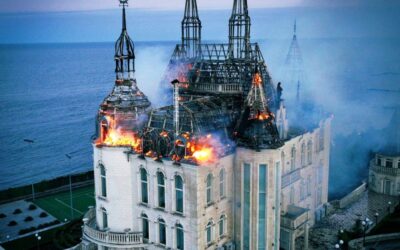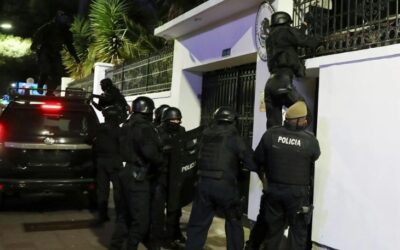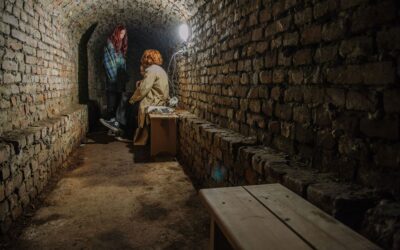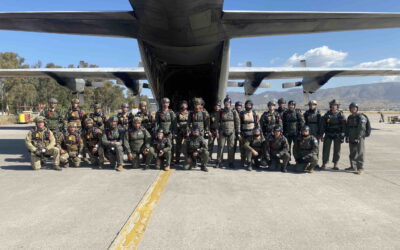HISTORY
HISTORY
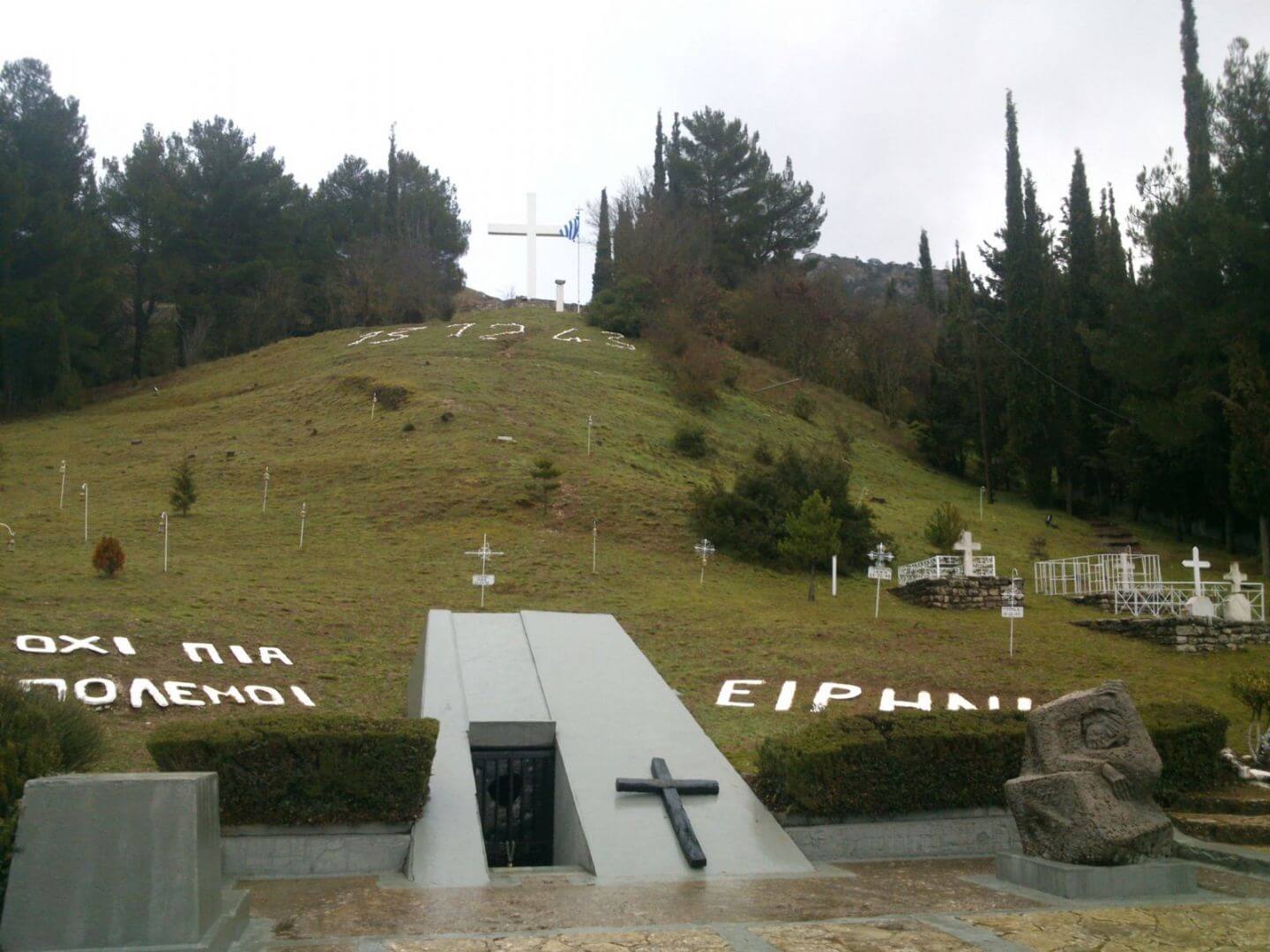
“We remain steadfast in our constant claim for payment of war reparations by the German State, until this just request is satisfied,” stresses the President of the Hellenic Republic, Katerina Sakellaropoulou, on the occasion of the 13th anniversary of the black December 1943, one of the major atrocities of the Nazi.
In a post on Facebook, the President of the Republic notes: “Honoring today that ominous day and the fallen of this unspeakable savagery, we do not relive the historical event, but we significate it in the context of our present.”
She also emphasizes that “we take responsibility for the vigilance against evil, the planned cruelty, hatred, and fanaticism that inhuman ideologies give birth to” and points out that “remembering means blocking the way to such atrocities”.
The chronicle
The area of Kalavrita and Egialia had developed a strong resistance action, already since the beginning of 1943.
In the Battle of Kerpini on October 17, 1943, the victory of the guerrillas was great. The Greek People’s Liberation Army (ELAS) captured and executed about 80 German soldiers. This was the reason for the horror that followed.
The German Wehrmacht Army was concerned about the revolutionary atmosphere, which was getting stronger and was constantly growing, so it wanted to mitigate it with an organized clearing operation that would include bombing, arson, and executions.
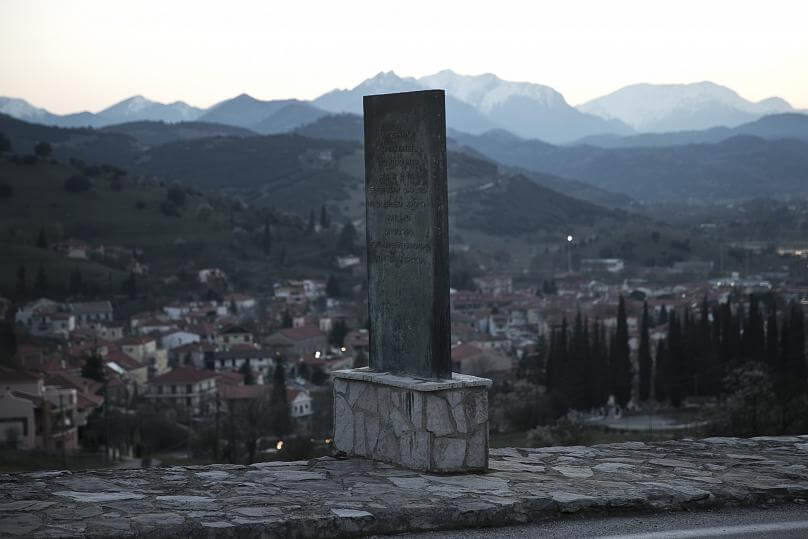
On December 9, 1943, the Germans entered Kalavryta, having burned, looted, and completely destroyed neighboring villages they came across on their way.
Rogi, Kerpini, Zachlorou, Souvardo, Vrachni, Kalano, Vlasia, Manesi Saradi, Mazi, and other villages, as well as the Holy Monastery of the Great Cave and the Monastery of Oblo, were engulfed in flames with many casualties.
Several residents of Kalavrita had left the village for fear of retaliation. The Germans assured them that no one would be harmed by the German commander Ebersberger giving the word of his military honor to appease the anxious and frightened locals.
In fact, in order to look more loyal, they only set fire to the houses of the guerrillas and limited themselves to the search for German wounded in the battle of Kerpini.
Also read: Pavlos Melas | The emblem of the Macedonian Struggle
On December 12, the Nazis were “preparing their departure”
However, on December 13, early in the morning, a force of the tactical German Army arrived in Kalavrita. The church bells rang and the officers ordered all the residents to gather at the town’s primary school, having a blanket and a day’s food with them.
There, people were separated, with women and children remaining in the school, and the whole male population over the age of 14 led in groups to the nearby “Kapis’ Back” (the “field of Kapis”).
This field was a slope in the shape of an amphitheater no one could escape from, while it had a full view of the burning and destruction of the properties and houses of the village.
Later in the day, the lifeless bodies of the unfortunate people of Kalavrita were lying on the ground after being shot by machine gunfire. As the men fell dead, the women and children were trapped in the primary school, which was engulfed in flames. The suffocating smoke gave them the strength to break down the door so that they could escape.
In total, during “Operation Kalavrita”, the Germans killed 1,101 people, destroyed and looted more than 1,000 houses, confiscated 2,000 sheep and goats, and seized 260,000,000 drachmas. Only 13 people out of the 800 who were led to “Kapi’s Back” were saved, protected by the bodies of their dead fellow citizens.
None of those responsible for the Kalavrita Holocaust has been brought to justice to date.
With information from: euronews.gr, defenceredefined.com.cy
Also read: New German government and German war debts to Greece
NEWSLETTER SUBSCRIPTION
Armenian Genocide Remembrance Day
On this day, 109 years ago, the genocide of the Armenian people by the Ottoman Empire began, with April 24 being the day of…
April 10, 1826 | The heroic Exodus of Messolonghi
Three years after the failed attempt of Kioutachis and Omer Vryonis to capture Messolonghi, the Sultan had a new plan.
Hellenic Army General Staff (HAGS) | Events for the 83rd Anniversary of the Battle of the Forts
On Sunday, April 7, 2024, the 83rd anniversary of the Battle of the Forts (April 6-9, 1941) was celebrated at “LISSE”, “RUPEL”,…
Russia | Cluster bombs hit residential area in Odessa
Images from Russia’s strike in the heart of Odessa, which hit the so-called “Harry Potter Castle”, a former politician’s mansion now…
France | Industries prioritize orders of anti-aircraft missiles
The Armed Forces Ministry of France has instructed industries involved in the production of Aster anti-aircraft and anti-ballistic…
Ecuador | Appeals to International Court of Justice denouncing Mexico
Ecuadorian police stormed the Mexican embassy hours after the Mexican government granted former Vice President…
Remote Modular Terminal | The US Space Force’s new weapon system
The US Space Force has unveiled its new Remote Modular Terminal (RMT) weapon system. The system has completed its…
Latvia | Citizens are asked to turn basements into air raid shelters
Latvian authorities have called on citizens to turn their basements into air raid shelters, causing concern.
HNDGS | Greece – USA bilateral exercise “STOLEN CERBERUS XI” – Photos
From Monday 15 to Friday 26 April 2024, the bilateral exercise “STOLEN CERBERUS XI” took place under the coordination…






